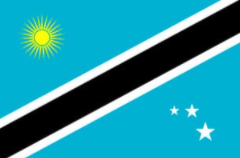Study in Caribbean

Study in Caribbean
Study in the Caribbean: Your Path to an Exotic Educational Journey
Are you ready to embark on a unique educational adventure, where turquoise waters, tropical breezes, and a rich cultural tapestry become the backdrop to your studies? If you’re considering studying abroad, the Caribbean offers an experience like no other. In this page, we’ll delve into the intricacies of studying in the Caribbean and how Qadri International Educational Consultants can make your dream a reality.
Why Choose the Caribbean for Your Studies?
A Tropical Academic Paradise
The Caribbean is not just about breathtaking beaches and swaying palm trees. It’s also home to some excellent universities and colleges. Whether you’re interested in marine biology, hospitality management, or Caribbean studies, you can find a program that matches your academic aspirations. The region’s unique environment provides a rich learning experience.
Cultural Diversity
Studying in the Caribbean is a melting pot of cultures. With influences from Africa, Europe, Asia, and the Americas, you’ll find a rich tapestry of traditions, languages, and cuisines. Studying in this cultural mosaic offers a chance to broaden your horizons, experience new perspectives, and immerse yourself in a vibrant and diverse community.
Language Opportunities
The Caribbean is a region where English, Spanish, French, Dutch, and various Creole languages coexist. This linguistic diversity can be a boon for language enthusiasts and those looking to become proficient in a second language.
Hands-On Learning
The Caribbean’s unique environment, including its marine ecosystems and tourism industry, provides unparalleled opportunities for hands-on learning. From coral reef conservation projects to hotel management internships, you can gain practical experience while earning your degree.
Admission Requirements
- To Study in Caribbean from UAE, you will need to meet specific admission requirements, which typically include academic Transcripts, You’ll need to provide transcripts from your high school or previous academic institution to demonstrate your academic history. A couple identification documents are also required, these documents differ depending on the chosen university.
Student life
The Caribbean offers a unique and vibrant student life experience, where academic excellence merges seamlessly with the region’s rich cultural diversity and natural beauty. Students in the Caribbean are welcomed into a close-knit community where warm hospitality and a spirit of camaraderie prevail. The campuses are not only centers of learning but also hubs of cultural exchange, fostering friendships among students from various backgrounds. Beyond the classrooms, students can explore pristine beaches, lush rainforests, and historical sites, creating unforgettable memories during their academic journey. The Caribbean lifestyle encourages a healthy work-life balance, with opportunities for outdoor activities, local festivals, and culinary adventures. Moreover, the region’s emphasis on community engagement and social responsibility allows students to actively participate in volunteer initiatives, contributing to the well-being of the local communities. In this vibrant and supportive environment, students can not only excel academically but also grow personally, making their time in the Caribbean truly transformative.
Studying in the Caribbean with Qadri International
Qadri International Educational Consultants specializes in assisting students from the UAE in securing admissions to Caribbean universities. Our dedicated team offers a range of services, including:
- University Selection: We help you choose the university that aligns with your academic goals and preferred location.
- Application Assistance: Our consultants ensure all application requirements are met efficiently, increasing your chances of acceptance. We help you prepare a comprehensive application that highlights your strengths and motivations.
- Visa Support: Navigating the Caribbean visa application process can be complex, but our experts provide guidance on required documentation and interviews, ensuring you have the necessary paperwork and support to obtain your student visa.
- Pre-Departure Guidance: Moving to a new region can be daunting, which is why we offer essential information and advice to prepare you for life in the Caribbean. From securing accommodation to adjusting to a new culture, our guidance ensures a smooth transition.
Conclusion
Studying in the Caribbean is an extraordinary opportunity to combine academic excellence with an exotic and diverse cultural experience. The region’s unique environment and hands-on learning opportunities make it an attractive destination for students from the UAE.
Qadri International Educational Consultants can be your trusted partner in turning this dream into a reality. Contact us today to take the first step toward your exciting academic journey in the Caribbean. Explore a world of possibilities and experience the Caribbean’s unique blend of education, culture, and nature.
STUDY IN YOUR DREAM UNIVERSITY
- Study in UK
- Study in USA
- Study in Canada
- Study in Ireland
- Study in Malaysia
- Study in Czech Republic
- Study in Poland
- Study in Hungary
- Study in Serbia
- Study in Germany
- Study in Georgia
- Study in Ukraine
- Study in Lithuania
- Study in Latvia
- Study in Caribbean
- Study in Northern Cyprus
- Study in China
- Study in Russia
- Study in Spain
- Study in Turkey
- Study in Republic of Cyprus
- Study in Italy

